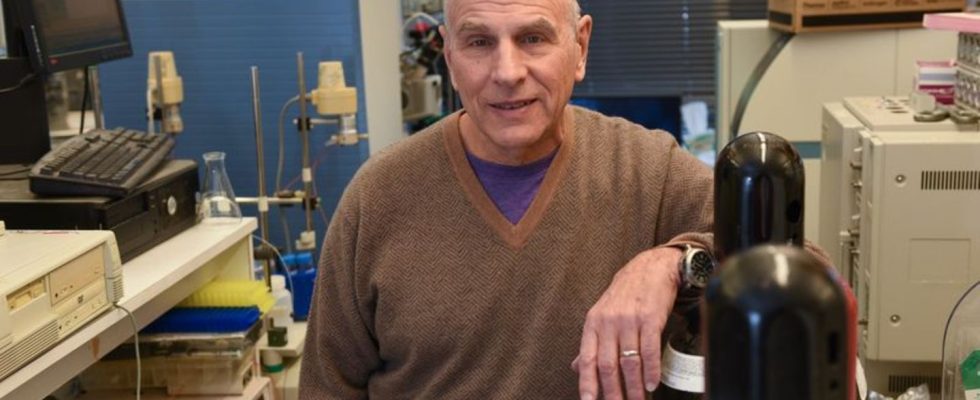Award
Paul Ehrlich Prize to immune researchers from the USA
Dennis L. Kasper is a physician and immunologist at Harvard Medical School. The American immunologist will be honored with the Paul Ehrlich and Ludwig Darmstaedter Prize 2024. photo
© Richard Groleau/Harvard Medical School/dpa
The immunologist Dennis Kasper will receive the Paul Ehrlich and Ludwig Darmstaedter Prize 2024. He discovered a language that bacteria in our intestines use to educate our immune system, it was said.
The American immunologist Dennis Kasper (80) will be with the Paul Ehrlich and Ludwig Darmstaedter Prize 2024 honored. According to the board of trustees, Kasper Words has discovered a language that the bacteria that populate our intestines use to educate our immune system. Thanks to his research, concrete starting points for the treatment of serious autoimmune diseases have already emerged, the board of trustees announced on Tuesday in Frankfurt.
The Paul Ehrlich and Ludwig Darmstaedter Prize is one of the most prestigious medical prizes in Germany. It has been awarded since 1952 and is endowed with 120,000 euros. The award is traditionally presented on the birthday of Nobel Prize winner Paul Ehrlich (1854-1915), March 14th, in Frankfurt’s Paulskirche.
Immunology at Harvard Medical School
Kasper has been a professor of medicine since 1989 and a professor of immunology at Harvard Medical School (Boston) since 1997. He is co-editor of “Harrison’s Principles of Internal Medicine”, which, according to the board of trustees, is the most widely used medical textbook in the world.
It is estimated that around ten trillion bacteria live in the large intestine of every human being. Many of them benefit their wearer in a variety of ways – others harm them. In order for our immune system to reliably distinguish between beneficial and harmful bacteria, it needs continuous communication. How bacteria communicate messages to their hosts’ immune systems remained a mystery for a long time – Dennis Kasper solved it using the example of the bacterium Bacteroides fragilis, as it was said.
Gut microbes educate our immune system
He discovered two molecules with which the intestinal microbe trains its host’s immune system to act moderately and not to attack. “The prize winner was the first to succeed in uncovering communication channels in the superorganism that humans and their microbiome form,” explained the chairman of the foundation board, Thomas Boehm. “Through him, we learned which signals intestinal bacteria use in our immune system to ensure a healthy balance between aggressiveness and inflammation suppression. This will have far-reaching clinical consequences.”

